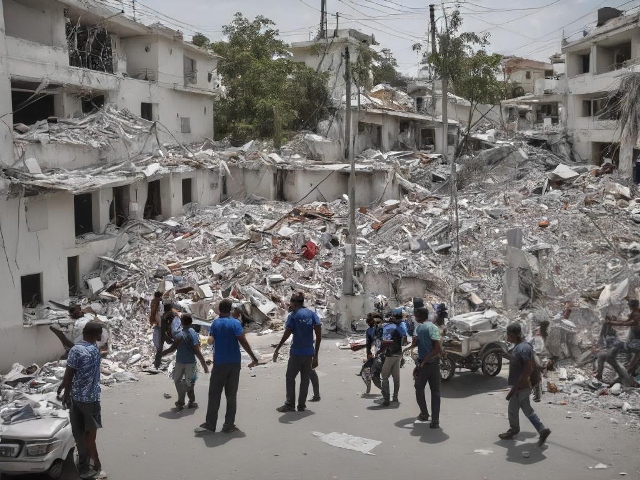A newly released UN report underscores the dire humanitarian situation in Haiti, where years of inadequate funding and escalating needs have left millions of Haitians in a state of chronic vulnerability. The UN Office for the Coordination of Humanitarian Affairs (OCHA) warns that reversing the crisis will require increased international and donor support for both UN and non-governmental organization (NGO) relief efforts.
Deteriorating Conditions
Violence in Haiti has worsened over recent months, exacerbating the humanitarian crisis. The report reveals that displacement has surged, with nearly 600,000 people now fleeing violence. The current situation is described as the worst since the catastrophic 2010 earthquake, with recent data showing a 60 percent increase in displaced persons since February.
OCHA reports that violence continues to target essential civilian infrastructure, leaving only 24 percent of hospitals operational and causing 1.5 million children to miss out on education. Half of the 578,000 displaced individuals have sought refuge in the south, where they are staying with economically vulnerable host families. Basic services like education, healthcare, and sanitation are under severe strain.
Increased Forced Deportations
The crisis has also been compounded by a rise in forced deportations of Haitians from neighboring countries. Nearly 100,000 people have been deported in the first seven months of this year alone, with the highest numbers occurring during periods of intensified violence.
Ongoing Violence and Malnutrition
Despite the arrival of a multinational security mission in late June to support Haitian police, violence between gangs and authorities persists, affecting both the capital and previously stable regions. The report documents almost 300,000 cases of malnutrition and notes that about 50 percent of Haiti's population, or five million people, are experiencing heightened food insecurity.
Potential for Worsening Crisis
There are concerns that the humanitarian crisis may spread to more areas previously unaffected by violence. Additionally, the current hurricane season, which is expected to be active, poses a further threat, with forecasts predicting between four and seven major storms.
Urgent Funding Needs
OCHA calls for urgent financial support to address the growing needs of the Haitian population. Without additional funds, the situation is likely to worsen, leading to increased food insecurity, education disruptions, and a lack of mental health services for vulnerable children.
“The humanitarian assistance is a crucial lifeline, but it is only part of the solution,” OCHA emphasizes. “A collaborative effort among government, political, and development actors is essential to address Haiti’s structural challenges.”
As of August, Haiti’s 2024 Humanitarian Response Plan is only 33 percent funded, receiving $162.5 million of the $674 million required.











